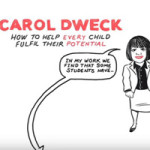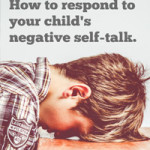At Palmy Boys’
Whether it’s crossing the street, making a meal, remembering to put their own stuff in their bag… they need to learn these things and childhood will teach them if only we’ll let it. We have to tolerate their imperfection, and teach them how, but not encroach/micro-manage. Humans want to learn and grow. We need to get out of their way….. read more.
For generations, mothers have gotten the same old message when it comes to raising sons: beware of keeping him “too close.” A mom who nurtures a deep emotional bond with her boy will prevent him from growing up to be a strong, independent man. By refusing to cut those apron strings, she is on track to create a wim…. read more.
No, you can’t eliminate every single tantrum, but you can help your child learn to bounce back from life’s bigger disappointments….. read more.
Any good parent wants their kids to stay out of trouble, do well in school, and go on to do awesome things as adults. And while there isn’t a set recipe for raising successful children, psychology research has pointed to a handful of factors that predict success. Unsurprisingly, much of it comes down to the parents. Here’s what parents of successful kids have in common:… read more.
Despite all our talk about instilling character and empathy, kids may value academic achievement and individual happiness over caring for others. In the report, the authors explained that the children’s values reflected what they believe adults value…. read more.
I don’t think this comes as news to anyone here, but it can be a real challenge to parent and to educate adolescents. My own specimens (boys, 11 and 15) spend their days vacillating between energetic and catatonic, optimistic and morose, ebullient and apathetic. Some days, I doubt that they will be able to forge a safe and successful path into adulthood without my constant help and intervention…. read more.
Did you know that if you want your children to succeed at school, simply telling them about your high expectations can have a positive impact on their academic achievement?
Students who achieve highly generally come from homes where parents expect that their children will “get off their butts, work hard, and do well at school.” In fact, this idea is nearly beyond question. When it comes to our children’s school results, our expectations are critical…. read more.
“We don’t need to reinvent manliness. We only need to will ourselves to wake up from the bad dream of the last few generations and reclaim it.” – Waller R. Newell …. read more.
What makes kids persist? What gives them the “grit” to keep working hard in school, to get good grades and ultimately be successful in life?
A big contributor is having a “growth mindset.”….. read more.
We live in a society that doesn’t reward or respect character as often as it should or even as it used to. Today, we see people who are willing to do just about anything to create the next viral video or become the next internet sensation. The feelings of others or their reputations are rarely taken into account. Cheating in school, taking the easy route in sports, ignoring responsibilities at home–if they even have any–are no longer taboo…. read more.
Want to raise compassionate and responsible children? Here’s what scientific research says about parenting….. read more.
Keeping the communication thread with your teenager resilient and firmly held by both ends is key to help your young adult navigate this big, often-confusing world. So before they get drawn into high-risk diversions, it’s time to look your teen in the eye. See the child, within, who needs an adult to tell them its all going to be okay. And the very best adult for that is you, the parent. Here are some ideas so you don’t get tuned out…. read more.
All parents want to see their kids succeed, but it’s just as important to teach your children how to fail. Failing can be reframed as trying, practicing, and putting in effort — and it’s nothing to be ashamed of. After all, it’s unrealistic to be good at everything on your first pass. Kids who can’t tolerate failure are vulnerable to anxiety and it can lead to bigger problems when they do inevitably fail…. read more.
If your kids aren’t doing their chores today, don’t be surprised if they have trouble collaborating with colleagues later in life. … read more.
We need to be explicit with our sons to stop bad things happening – like doing things to girls without their consent…. Today, there are pictures. Except instead of acting as evidence of a crime, the picture is the crime. Something bad happens, it is photographed, and posted on social media. Where it remains forever…. read more.
Mike Berry knows the apple doesn’t fall far from the tree and identifies 7 ways your kids will copy you…… read more.
When raising teenagers, conflict usually comes with the territory. A growing body of research suggests that this can actually be a good thing. How disagreements are handled at home shapes both adolescent mental health and the overall quality of the parent-teenager relationship. Not only that, the nature of family quarrels can also drive how adolescents manage their relationships with people beyond the home….. read more.
Is failure a positive opportunity to learn and grow, or is it a negative experience that hinders success? How parents answer that question has a big influence on how much children think they can improve their intelligence through hard work, a study says….. read more.
Fathers who get involved in their kids’ education have a big effect on the health, academic success, and happiness of their sons and daughters…. read more.
Is our obsession with safety and providing sanitised spaces for children actually hindering their development? Let them fail, fall and feel their own way through and we might reverse a worrying trend, writes Rachael Sharman…. read more.
It’s common knowledge that 2- and 3-year-olds can be ridiculously exhausting and frustrating, and most moms eagerly admit to their difficulties and offer advice and wisdom on how to cope. But teenagers? I felt many times like I was wandering lost in the teenage desert with no playgroup moms around to boost my mothering confidence…. read more.
A new study explores what happens to students who aren’t allowed to suffer through setbacks…. read more.
When it comes to kids today, has there been a shift? Have we gone too far in the other direction? Instead of giving tough love, now we give love out by the bucketful. For everything and anything. And we teach kids that everyone’s a winner. But, let’s be honest. They’re not. Sometimes we win, and sometimes we don’t. Sometimes we have to watch someone do better than us, succeed where we might need to work a bit harder. And we’re not happy with that in today’s society….. read more.
Ever wondered why kids say they’re bored at school, or why they stop trying when the work gets harder? Educationalist Carol Dweck explains how the wrong kind of praise actually *harms* young people….. read more.
If you are a parent born before the age of the internet then you and your child were not born into the same culture. Not since the Industrial Revolution have we experienced an era in which the cultural divide between parents and kids seems to be so great. Parents of tweens and teens in particular sometimes learn the hard way that the old adage “ignorance is bliss” is far from accurate when it comes to digital age parenting…… read more.
Parenting is super-demanding and I want us to have as much cheerleading as we can get. We should be cut some slack for not getting everything perfect … except in one crucial area: alcohol….. read more.
Over the past decade our families have been swept up by a screen tsunami. Children and adults are walking around with screens in our bags and backpacks, our pockets, and our palms. We are always turned on, and neuroscientists are discovering that it is rewiring our brains – and the new neural connections are not functioning as well as the old ones….. read more.
When negative self-talk spews from your child’s mouth, your knee-jerk reaction is to stop it. To give your child some reassurance or to convince them that their thinking is flawed. Unfortunately, their words may match their feelings. They do not feel “loveable” or “wonderful” (as you may suggest), they feel “dumb,” “stupid,” and “like the worst kid in the world.” Instead of moving in to fix it, try these ideas to address the underlying feeling and their internal struggle…… read more.
Emotional intelligence refers to the ability of a person to manage his emotions in a healthy way and to respond appropriately to the feelings of others… read more.
It has become a cultural cliché that raising adolescents is the most difficult part of parenting. It’s common to joke that when kids are in their teens they are sullen, uncommunicative, more interested in their phones than in their parents and generally hard to take. But this negative trope about adolescents misses the incredible opportunity to positively shape a kid’s brain and future life course during this period of development…. read more.
Why do teenagers seem so much more impulsive, so much less self-aware than grown-ups? Cognitive neuroscientist Sarah-Jayne Blakemore compares the prefrontal cortex in adolescents to that of adults, to show us how typically “teenage” behavior is caused by the growing and developing brain…… read more.
Many teens feel as though they’re in a no-win situation when it comes to sharing information online: damned if they publish their personal thoughts to public spaces, and damned if they create private space that parents can’t see. Parent-teen battles about privacy have gone on for decades. …. read more.
Siegel illuminates how brain development impacts teenagers’ behavior and relationships. Drawing on important new research in the field of interpersonal neurobiology, he explores exciting ways in which understanding how the teenage brain functions can help parents make what is in fact an incredibly positive period of growth, change, and experimentation in their children’s lives less lonely and distressing on both sides of the generational divide…. read more.
Harmful digital communication can take many forms. Learn more about the new Act and how to deal with online harassment… read more.
Children can’t resist the pull of electronic devices, and parents don’t know what to do about it. Sound familiar? The average child spends more time consuming electronic media than going to school, with many teenagers going online “almost constantly.” And parents aren’t necessarily being good role models. A British study showed that while six in 10 parents worried that their children spend too much time in front of a screen, seven in 10 children worry that their parents are the ones who are plugged in and tuned out…… read more.
A unique award-winning computer program that helps young people learn skills to deal with feeling down, depressed or stressed….. read more.
A new study has found that kids want the rules to run both ways, and that many adolescents would like their parents to stop texting while driving or posting their photos without their permission…… read more.
When boys are young they often follow their fathers around, asking endless questions and trying to be “just like Dad”. But as boys get older, much can go unsaid — especially when it comes to struggles and challenges in their lives…… read more.





































